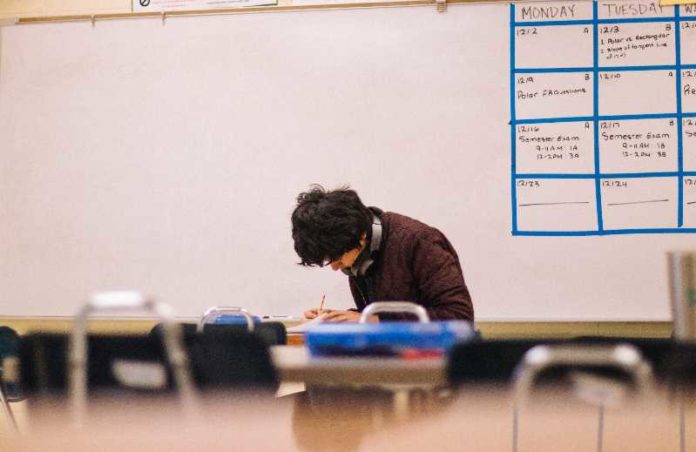East county schools prioritize student well-being after stressful pandemic
 As students and teachers enter a school year unlike any other, Gresham-Barlow and Centennial school districts are dedicating resources to support the mental health of students.
As students and teachers enter a school year unlike any other, Gresham-Barlow and Centennial school districts are dedicating resources to support the mental health of students.
The pandemic has been a traumatic time for many students and these districts are trying to find ways to support their student’s emotional health. After being isolated from friends, perhaps stuck in difficult family situations, their parents losing their jobs or simply struggling to understand what is going on in the world, it is highly possible students’ mental health may have suffered.
Gresham-Barlow Approach
For Gresham-Barlow’s executive director of innovations and partnerships, Carla Gay, these stressors don’t just disappear when students come to school.
“Knowing that some of those kids lost a family member during the pandemic and are still afraid,” Gay said, “we are dedicating the month of September to mental health and emotional care.”
Although it was difficult to keep track of some students’ emotional well-being during the pandemic, Gresham-Barlow has built in time for social emotional learning during comprehensive distance school. Gay is excited to continue this effort when students return to in-person instruction this fall. The district is adding 50 minutes a week dedicated to social emotional work through “advisories” — where groups of high school or middle school students come together to talk about things going on in their lives and community, and where an adviser is dedicated to checking in on them.
“It is low stakes, high engagement and not graded,” Gay said. “We are trying to give them a sense of community, that these are my people.” Advisory works as a first response for some students who might be dealing with more intense mental health issues. With an adviser keeping track of a student’s well-being, Gay hopes that student gets noticed and provided options to handle specific struggles.
Gresham-Barlow has contracted with multiple mental health specialists from Trillium Family Services, NorthWest Family Services and Multnomah County Health to move throughout the district’s schools to engage with students dealing with mental health issues.
Gay acknowledges that having these specialists moving between schools, students might not be able to get the help they need. That’s why the district is piloting a partnership with Care Solace, an organization with experience in navigating barriers to accessing mental health care.
“(Care Solace) is like a dating app for mental health,” Gay said. “They are not the provider but navigators through this library of providers.”
Gay said the service will cut the time in finding a mental health specialist and match students with the appropriate expert for their specific situation.
Care Solace is also being offered to teachers, whose well-being plays into students’ mental health.
“The biggest thing that I am trying to be aware of is making sure how our staff is feeling and doing so they can be present for our students,” Gay said. “I really want to make sure that our staff is taken care of.”
In the school level
Centennial Middle School counselor Chris O’Connor said her school and schools throughout the district are prepared for mental health challenges.
“This past year and a half has brought upon unique challenges for everyone,” O’Connor said. “Students returning to school are arriving with so much on their mind and I truly believe we are ready to serve and support every student that walks through our door.”
One way Centennial Middle school is supporting students is by expanding their community class, a way students can connect with peers, teachers and other staff, similar to Gresham-Barlow’s advisory.
“I do worry that the isolation that many students experienced early on in the pandemic will have lasting effects on their mental health,” O’Connor said.
O’Connor said she has faith that community class and staff will help students with some of the loneliness they might have felt during the pandemic. “I think the biggest concern for all of us is that we just don’t know the extent of what our students have experienced in the last year,” O’Connor said. “But, I do know that my team is ready to help support and nurture every single one of our students.”
Centennial schools also have access to mental health providers in cases where students need additional support.
You count on us to stay informed and we depend on you to fund our efforts. Quality local journalism takes time and money. Please support us to protect the future of community journalism.









